Anal gland disease in cats can affect any age, breed, or sex. If caught early, it can be quick and easy to treat.
Both male and female cats have two small pouches inside the anus called the anal sacs or glands. Their normal function is to release a few drops of liquid into the stools to give them a distinctive smell. This is most likely a way to mark their territory.
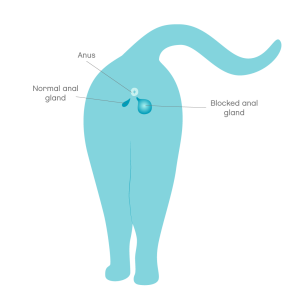
If the glands don’t empty when your cat passes stools, they fill up with secretion. This can cause irritation. If this happens, they will need emptying.
Overview
What is anal gland disease in cats?
The most common problem is when the glands fill up with a thin brown secretion. If this happens, the glands will usually need emptying by your local vet. This might involve sedation, but the symptoms should resolve completely.
Cats can also develop anal gland infections, impactions, and abscesses.
- Infections and impactions are usually found by your vet when they empty the glands. The liquid from the glands is usually different in colour and thickness.
- Abscesses appear as a painful red swelling on the side of the anus. They may rupture and produce a sticky discharge that has blood in it.
- Cats also get anal gland tumours, though these are not common.
Our Joii team are available 24 hours a day for advice. If your cat has anal gland symptoms, we may recommend a visit to your local vet. Especially if they have never had this problem before.
Symptoms
Symptoms of anal gland disease in cats
- Scooting or rubbing their bottom on the ground: This can be a similar symptom for worms. Find out more about Worms in cats.
- Biting or licking around the tail, back legs, and anus
- Hair loss around the tail or tummy
- Chasing their tail
- Straining or discomfort when passing faeces
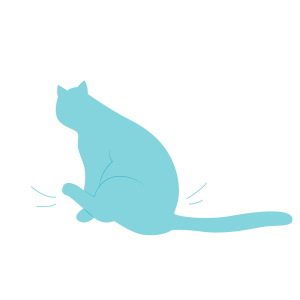
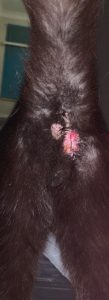
Find out other reasons why your cat may be scratching in our Itchy cats article.
Risk
Are some cats at greater risk of anal gland disease than others?
The following factors can all lead to an increased risk of anal gland disease:
- Low-quality or inadequate diets, or those with too little fibre
- Soft stools, Diarrhoea, and infrequent bowel movements
- Skin conditions, feline inflammatory bowel disease, Food allergies and environmental allergies.
- Obesity
Diagnosis
How is anal gland disease diagnosed in cats?
If the anal glands block, then they need to be emptied. We recommend an appointment with your local vet for this. This is usually very straightforward and should completely resolve the problem.
- For the diagnosis of anal gland infections, your vet may take a swab. This will test for the type of infection and which medication will clear it.
- For growths, tumours, or thickenings of the glands, your vet will take a biopsy to assess what type of cells are causing the abnormality. The biopsy result will usually show whether any further treatment is necessary.
We don’t recommend attempting to empty your cat’s anal glands yourself unless under veterinary advice. This can cause damage if it’s not done the correct way.
Vet treatment
What’s the treatment for anal gland disease in cats?
Full anal glands
Your vet will empty the glands. The symptoms should resolve quickly, usually within 24 hours.
Anal gland impactions
The glands may need flushing under sedation, depending on the severity. Pain relief medication is often given.
Anal gland infections
Antibiotics are often used to clear the infection. These can be by mouth, by injection, or put directly into the anal glands by your vet. Pain relief medication is also used.
Anal gland abscesses
These are very painful, so they’ll need antibiotics and pain relief medication. Surgical treatment might also be required if the abscess has not already burst open.
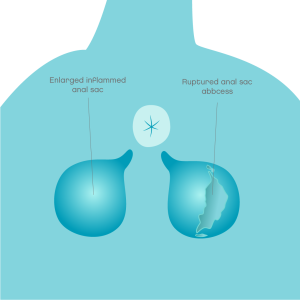
For most anal gland problems, your vet will likely recommend a repeat check after a few days. This is to check that the problem has resolved.
Home treatment
How to look after a cat with anal gland disease at home
- Use a warm compress on the bottom for 5-10 minutes. This can relieve some discomfort. Repeat this 2-3 times daily.
- Keep the area around the bottom as clean and dry as possible.
- Add fibre to the diet, such as canned pumpkin, bran flakes, or probiotic paste. This can help to firm up the stool in the short term.
Prevention
Tips on how to prevent anal gland disease in cats
- Good-quality, complete cat food is extremely important. Changes in the stools are one of the main causes of the glands filling up.
- Use anal gland supplements for cats. These may prevent anal gland issues from returning.
- Recurrent anal gland problems are rare in cats. Get the anal glands emptied regularly with your vet if they show symptoms.
- If your cat doesn’t show symptoms of anal gland disease, there’s no need to empty them.
- Keep your cat in a healthy body condition and provide adequate exercise. See the guide below to help assess your cat’s body condition.
Body Condition Scoring (BCS) in cats
Body Condition Score (BCS) is a scale that gives a practical evaluation of the fat coverage of your cat’s body. By checking how easy or not it is to feel certain bony areas of the body, a score is then produced. There are several scales, from 1 to 5 or 1 to 9. The ideal body condition lies in the middle, so either 3/5 or 5/9.
The body areas normally checked for fat coverage are:
1. ribs and spine
2. hips and shoulders
3. waist
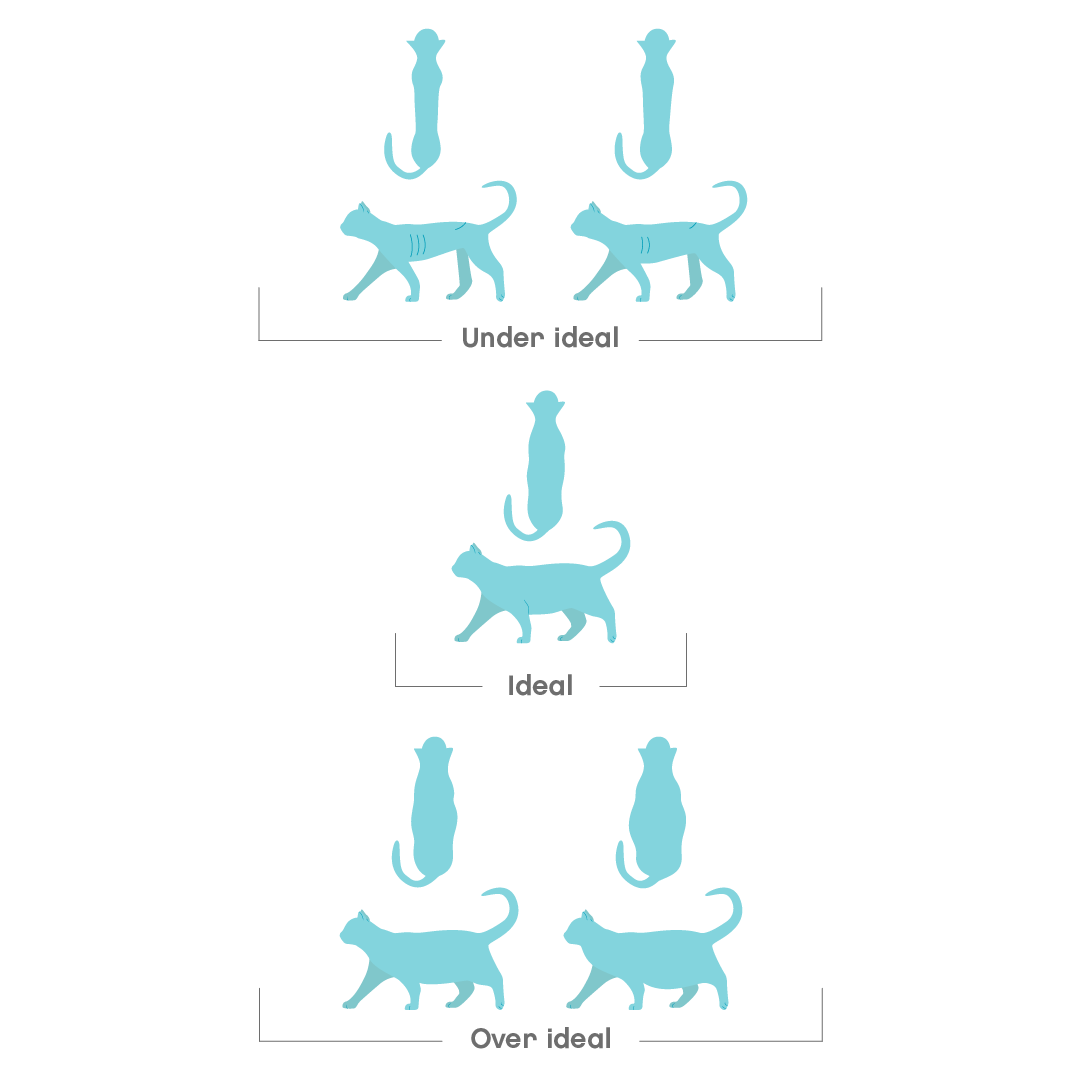
Here are a few tips on how to do it.
With your pet in a standing position:
- Place your hands on the rib cage and gently feel for each rib, without pressing too hard
- Feel the waist and look from the top and the side (if you have a very furry breed, it may be harder to assess)
- Feel the spine, which runs down the middle of the back
- Feel the top of the hips and shoulders
Call our Joii team with any questions you have about preventing anal gland disease.
When to worry
When to worry about anal gland disease in cats
Full anal glands are usually not urgent unless they are causing severe discomfort. If possible, make an appointment within 5 days to get them checked by your local vet.
Anal gland abscesses can be very painful, so we recommend getting them checked with your local vet within 24 to 48 hours.
Joii can help if
- You are unsure if your cat has anal gland symptoms.
- You see any abnormalities around your cat’s bottom.
- You have any questions about supplements used to help with anal gland problems.
- You have any questions about your cat’s diet or weight.












